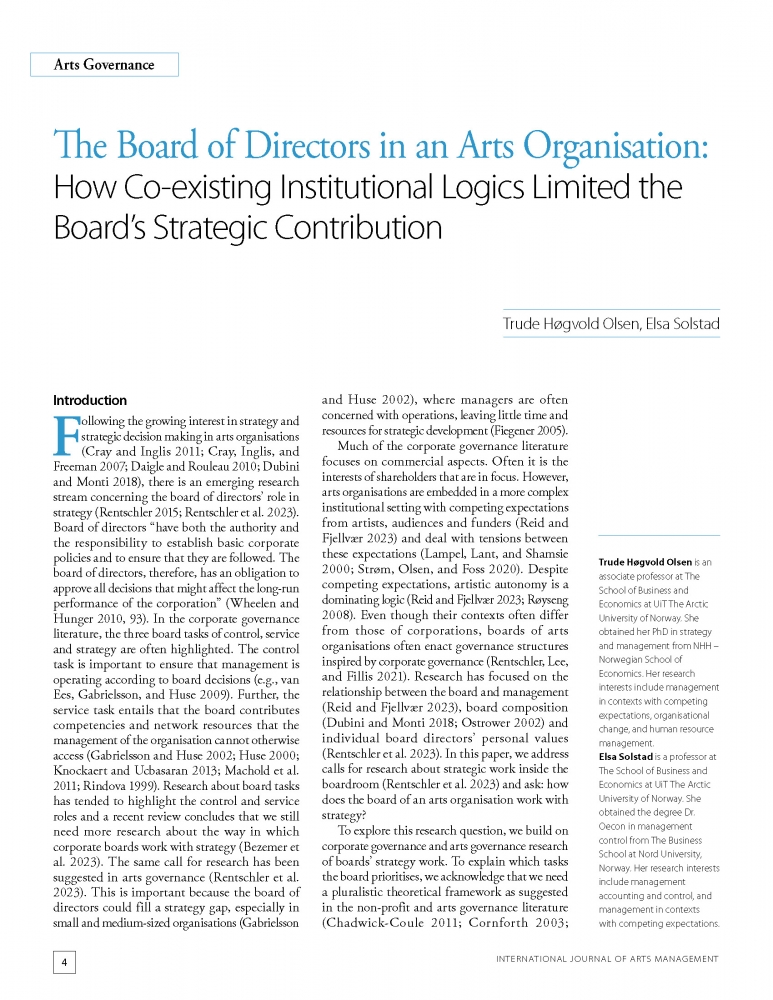The Board of Directors in an Arts Organisation: How Co-existing Institutional Logics Limited the Board’s Strategic Contribution
Produit: Article
21,00 $ CA
(disponible en anglais seulement)
Trude Høgvold Olsen, Elsa Solstad
Trude Høgvold Olsen is an associate professor at The School of Business and Economics at UiT The Arctic University of Norway. She obtained her PhD in strategy and management from NHH – Norwegian School of Economics. Her research interests include management in contexts with competing expectations, organisational change, and human resource management.
Elsa Solstad is a professor at The School of Business and Economics at UiT The Arctic University of Norway. She obtained the degree Dr. Oecon in management control from The Business School at Nord University, Norway. Her research interests include management accounting and control, and management in contexts with competing expectations.
ABSTRACT
Even though there has been a growing research interest in the boards of directors’ strategic contribution in arts organisations, we need more knowledge about how such boards work with strategy. In this paper, we report on a qualitative case study exploring how the board of directors in an arts organisation worked with strategy. We followed the board’s work over 18 months through board documents, observations of board meetings and interviews. We found that the board engaged more with strategy control than strategy development. We interpret this finding applying institutional logics which acknowledges the plural rationalities of arts organisations. We suggest that the emphasis on strategic control was a result of an implicit ranking of co-existing logics. The art logic was ranked highest in strategy development, limiting the board’s strategic contribution, while the public logic was highest ranked in strategy control, allowing the board to make strategic contributions.
KEYWORDS
Institutional logics; responses; arts organisation; board of directors; strategy work
